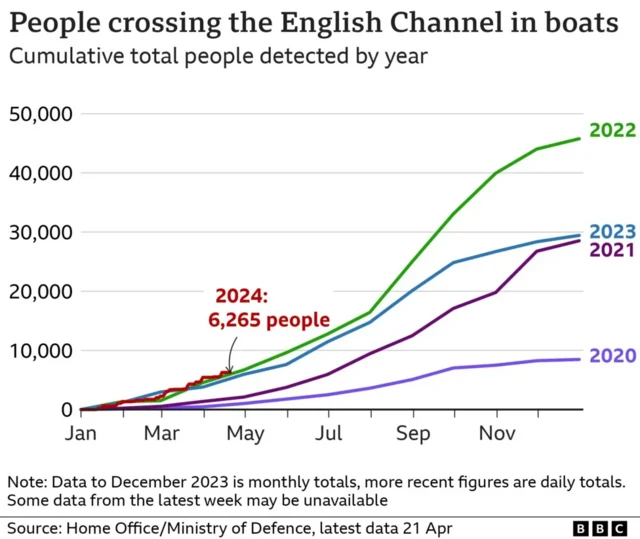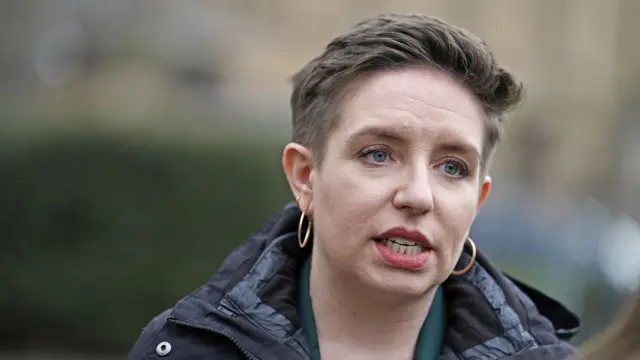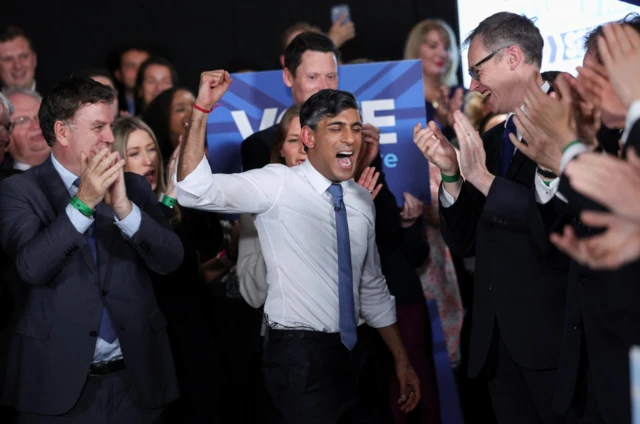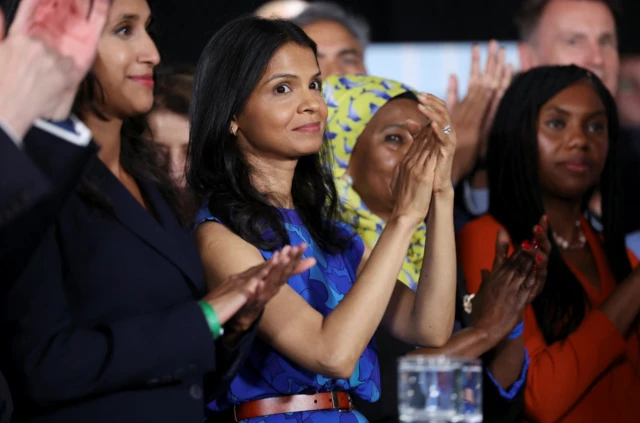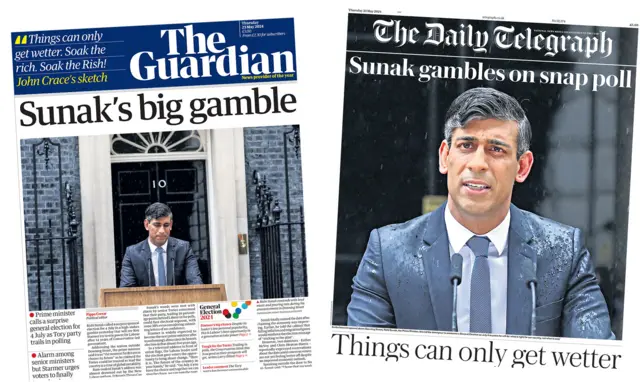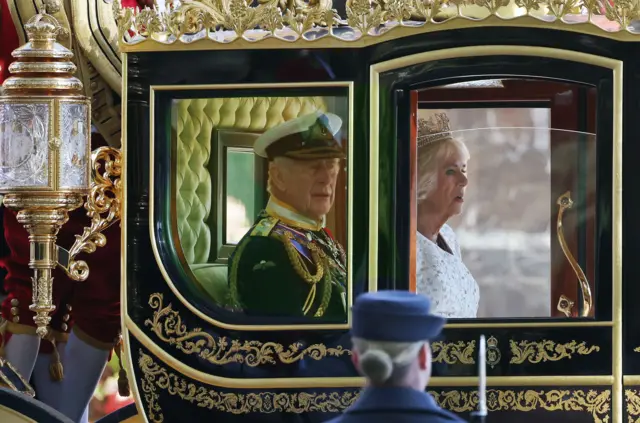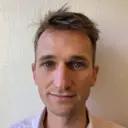Sunak hits out at Labour's plans on taxespublished at 07:52 BST 23 May 2024
Sunak is then asked if his party is a tax-raising government.
He says his legacy as chancellor was "to make sure we got UK through one of difficult periods in history", in reference to the pandemic.
He says we've cut taxes by £900 and says Labour opposes tax cuts.
